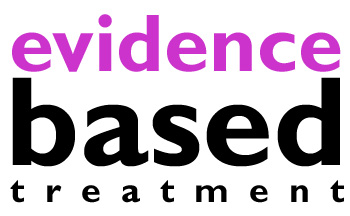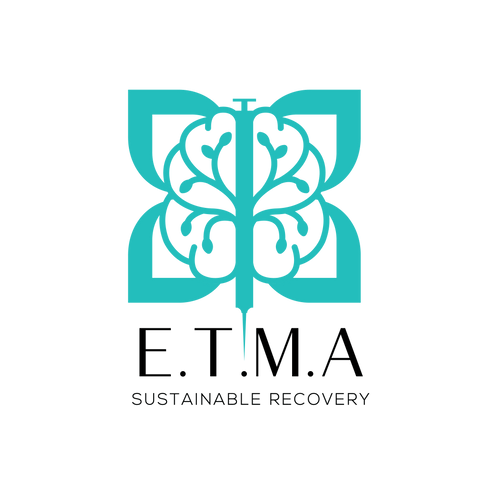What is Evidence-Based Treatment (EBT)?

Let me ask you a personal question, if you have a choice, would you prefer to be treated by a doctor who was up to date with the latest science has to offer in order to be treated effectively for your ailment; or by a doctor who was seasoned but could only offer as much as he knows? Most people prefer to be treated as effectively, and modern medicine has provided us over the years with the most up to date tools for treating disease.
Evidence-based treatment or practices (EBTs/EBPs) are treatments that have been researched academically. They have been scientifically proven effective and replicated by more than one investigation or study. EBTs are an integration of medically researched evidence and individual patient values in addition to clinical experiences of the provider. So not only do EBT practitioners offer their own seasoned experience, but like any modern day specialist, he/she is up to date with the latest medicinal science has to offer!
Why EBT?
We do not live in an age of augury, but an age of science, information, and technology. The evolution of medicine over the years has guaranteed life expansion and sustenance beyond any age previously. With that, patients being consumers of modern medicine expect treatment to be empirically justified and effective to their greater improvement and well-being.
It becomes imperative to practice EBT when dealing with substance abuse treatment due to the nature of clients who come into treatment. Integration of substance abuse treatment with mainstream health care is important because patients come in with various co-occurring complaints as a result of substance abuse, which may involve other mental and physical medical procedures that involves integrity of these medical sciences.
According to the Journal of Substance Abuse Treatment, ‘Those who are not providing empirically supported interventions are going to have a harder time getting paid for their services – “Anything goes”, is gone. It goes on to say that: “Physicians who provide outdated or ineffective treatments are vulnerable to claims of malpractice. Furthermore, trends towards person-centered care highlight the right of clients to have sufficiently accurate information about their therapeutic options to allow them to make informed choices about their own treatment.” All of this points not only to the preferability of EBTs but the necessity of its use.
The EBT Treatment Process
There are six steps to treating patients using EBT. They are as follows:
Assessment
The patient is asked appropriate questions to discover his/her clinical needs.
Research
Acquire as much investigation and research into studies done on similar cases.
Evaluation
Appraise the validity, applicability and quality of the research to the patient’s case.
Discussion
Talk to the patient about the results of the research to determine how it could be integrated with the patient’s values, needs, and goals.
Planning
Apply the knowledge through collaboration by developing a shared plan of action between the patient and treatment provider.
Engagement
Activate treatment through implementing the plan.
Types of EBT
There are various types of treatment modalities that are used within the spectrum of EBT. They are as follows:
Cognitive Behavioral Therapy (CBT)
This is the most popular and widely used treatment model for treating addictions and other mental health disorders. It treats the patient by disputing often-held negative core-beliefs, which then translate into a change in feelings and subsequent behaviors.
Exposure Therapy
Useful to treating patients undergoing phobias, PTSD (Post-Traumatic Stress Disorder), and anxiety. By exposing the patients slowly but surely to the aversive environment or object; gradual recovery can be obtained via normalization.
Functional Family Therapy
Useful to treating adolescents with problems of substance abuse.
Dialectic Behavioral Therapy (DBT)
Helps a complex amalgamation of co-occurring disorders.
Motivational Interviewing
Aids in the recovery of substance abuse in certain cases.
Assertive Community Treatment
Specializes in the care of severe mental health disorders and illnesses.
Benefits of EBT
It is Scientific
EBT involves large-scale clinical trials. The wisdom and benefit of hundreds if not millions of cases are at the disposal of any clinician who is willing to delve into the research. There’s much assessment of the various risk factors. Additionally, EBT being scientific is replicable and standardized.
Highly Specialized and Trained Clinicians
Highly qualified and responsible personnel are hired over a thorough process of recruitment. To be a clinician that practices EBT, one has to undergo a masters’ degree in the relevant field of treatment. Furthermore, to keep such credentials, one must also keep up to date with the latest innovations in the science of EBT by attending various workshops and seminars conducted worldwide.
Dual Diagnosis can be treated simultaneously
Many patients coming into treatment for substance abuse, come with a number of co-occurring mental and or physical maladies. The EBT practitioner employs a holistic and scientific approach to treating all these problems at the same time due to embracing the multi-faceted science that is needed to treat the patient in question. This means that patients can get all their medical needs met in addition to gaining recovery from an addiction.
What is your rights as a patient?
According to the Journal of Substance Abuse Treatment: “Courts are upholding clients’ right not only to treatment but also to effective treatment.” This is a sure sign that it is not good enough to just trust a seasoned practitioner to help you with your addiction, but to ensure that he/she practices the best treatment, which modern science can guarantee. This is your right and here at Solace Sabah, we respect this right, which is why we only employ counselors and clinicians who practice EBT. What we want is that our patients get treated effectively and recover happily!

